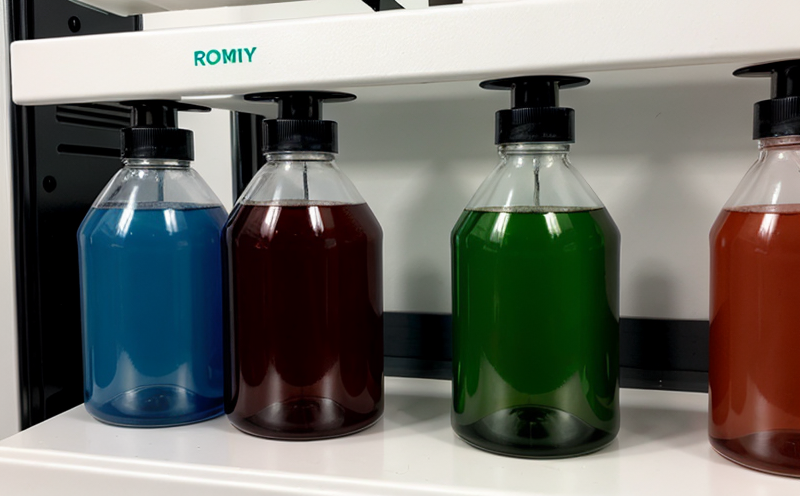GB T 2918 Conditioning Reactivity Testing of Plastics
The GB/T 2918 standard is a crucial part of China's quality assurance framework, specifically addressing the conditioning and reactivity testing of plastics. This test ensures that plastic materials undergo appropriate environmental conditions to achieve optimal performance. The standard provides methodologies for determining the effect of temperature and humidity on the physical properties of plastics, which can significantly influence their reactivity during manufacturing or end-use applications.
Conditioning is essential because it allows the plastic samples to equilibrate with the test environment. This process ensures that the tested material behaves consistently under specified conditions, reflecting real-world performance accurately. The GB/T 2918 procedure involves conditioning plastic specimens in a controlled atmosphere chamber for a defined period before subjecting them to reactivity testing.
The reactivity testing evaluates how plastics respond chemically or physically when exposed to certain stimuli such as heat, light, or chemical agents. This information is invaluable for quality managers and compliance officers looking to ensure that the materials meet regulatory requirements. For R&D engineers, this test provides insights into potential improvements in formulation or processing techniques.
Understanding the reactivity of plastics is critical in various industries including automotive, electronics, construction, and packaging where long-term performance and safety are paramount. By conducting GB/T 2918 tests, manufacturers can enhance product reliability and durability while reducing risks associated with material failure.
The standard specifies precise procedures for conditioning and testing that ensure consistency across different laboratories and regions. This uniformity is essential in maintaining the integrity of test results, which is particularly important when dealing with international standards or cross-border collaborations.
Why It Matters
The importance of GB/T 2918 conditioning and reactivity testing cannot be overstated. Accurate testing ensures that plastic materials perform reliably under various conditions, which is crucial for industries relying heavily on polymer technology. For instance, the automotive sector demands durable and safe components that can withstand extreme temperatures and environmental factors.
In the electronics industry, the choice of appropriate plastics can enhance product longevity by preventing degradation from exposure to heat or chemical agents. Similarly, in construction, selecting the right plastic material for windows or piping systems ensures long-term performance against external elements like sunlight and moisture.
For R&D engineers, this test is instrumental in developing new formulations that meet both current standards and future expectations. It allows them to identify areas where improvements can be made without compromising safety or quality.
Compliance officers play a vital role in ensuring adherence to local regulations regarding material usage. By leveraging GB/T 2918 testing, they can verify that their products comply with national standards, thereby avoiding potential legal issues and maintaining a good reputation among consumers.
Scope and Methodology
| Parameter | Description |
|---|---|
| Conditioning Time | The duration required for the plastic specimens to reach equilibrium with the test environment. Typically ranges from 16 hours to 96 hours depending on the specific requirements. |
| Environmental Conditions | The controlled atmosphere chamber maintains temperature between -20°C and +50°C, humidity levels between 23% RH and 75% RH. Specimens are conditioned under these conditions to simulate real-world storage and usage environments. |
| Reactivity Testing Methods | Various methods may be employed such as differential scanning calorimetry (DSC), thermogravimetric analysis (TGA), or Fourier transform infrared spectroscopy (FTIR) depending on the type of reactivity being evaluated. |
| Data Collection and Reporting | All collected data points are meticulously documented, including temperature, humidity, sample mass changes, and any other relevant parameters. These records form part of the final report submitted to clients. |
The GB/T 2918 standard also emphasizes the importance of replicating these conditions as closely as possible across different laboratories to ensure consistent results. This consistency is achieved through rigorous calibration and validation processes carried out by accredited laboratories like ours.
Use Cases and Application Examples
In the automotive industry, GB/T 2918 testing helps ensure that dashboards, bumpers, and other exterior components retain their color and durability over time. In electronics manufacturing, it guarantees that circuit boards and housing materials remain stable against high-temperature soldering processes.
For construction firms, this test ensures the integrity of waterproof membranes used in roofing or underground structures exposed to harsh weather conditions. In packaging solutions, it helps select barrier films capable of protecting contents from oxygen, moisture, or light degradation.
R&D teams benefit greatly by using GB/T 2918 tests early in their development cycles. This allows them to incorporate necessary adjustments into formulations before they reach production stages, saving time and resources. Compliance officers use these results to demonstrate adherence to national standards during audits conducted by regulatory bodies.





